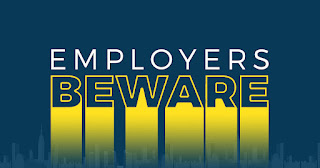The age of digitization has elevated the significance of privacy rights, particularly regarding employment relationships. With the rise of personal electronic accounts, there has been growing concern about whether employers should be granted access to these accounts. Addressing this concern, Assembly Bill A836 in New York has recently been passed and heads to the Governor's Desk to be enacted, providing significant protection of employees' and applicants' digital privacy.
Defining the Prohibition: Assembly Bill A836
The 2023-2024 legislative session of New York saw the introduction of Assembly Bill A836, sponsored by Assemblyman Dinowitz. The bill provides comprehensive protection to the digital privacy of employees and job applicants, explicitly forbidding employers from requesting or requiring an employee or an applicant to disclose access details to their personal accounts on electronic communication devices.
What Constitutes a Personal Account?
Under the provisions of the bill, a personal account is an electronic medium profile where users create, share, and view user-generated content. This could range from uploading or downloading videos or photos, blogging, vlogging, instant messaging, or maintaining any internet website profile that is used by an individual exclusively for personal purposes.
Impact on Employers and Employees
Under the proposed bill, employers cannot compel or require employees or job applicants to disclose authentication details, access personal accounts in the employer's presence, or reproduce content or information from these personal accounts. Any infringement of this law may have legal repercussions.
Notable Exceptions
Despite the broad coverage of the bill, there are certain exceptions where an employer may request access information. These exceptions typically revolve around non-personal accounts that provide access to the employer's internal computer or information systems.
The bill also allows employers to request access information to an account used for business purposes or an account tied to an electronic device partially or fully paid by the employer. However, the employer must provide prior notice to the employee and obtain explicit agreement.
Looking Ahead
Upon being signed into law, Assembly Bill A836 will come into effect 180 days later, marking a significant milestone in the protection of digital privacy in the workplace. It emphasizes the necessity of distinguishing personal and professional spheres in the digital realm and serves as a potential precedent for other jurisdictions to follow.
Employers will have to adapt to this legislation and update their practices to maintain compliance. This underscores the continuous challenge of harmonizing privacy rights with business requirements in the rapidly evolving digital era.








